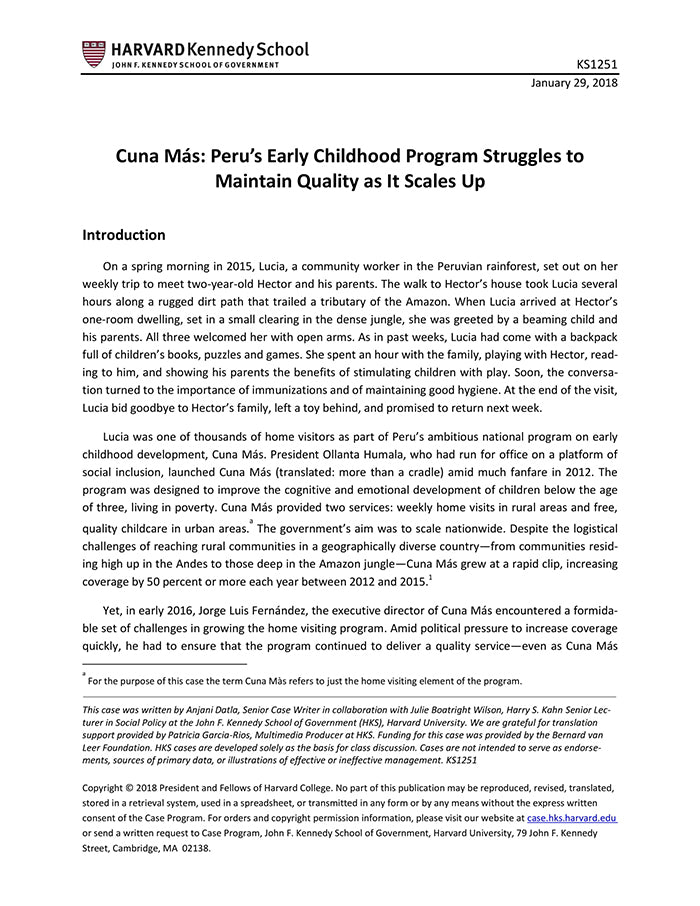Cuna Mas: Peru's Early Childhood Program Struggles to Maintain Quality as It Scales Up
受取状況を読み込めませんでした
In 2012, amid much fanfare, Peru's President Ollanta Humala launched an ambitious program on early childhood development called Cuna M s. The program, based on a successful home visiting intervention in Jamaica, was designed to improve the cognitive and emotional development of children below the age of three, living in poverty. The government's aim was to scale the program nationwide. Initially, despite the logistical challenges of reaching rural communities in a geographically diverse country-from communities residing high up in the Andes to those deep in the Amazon jungle-the program grew at a rapid rate, increasing coverage by 50 percent or more each year between 2012 and 2015. By early 2016, however, Cuna M s encountered a formidable set of challenges. Amid political pressure to increase coverage quickly, the program had to ensure that it continued to deliver a quality service-even as Cuna M s staff navigated the delicate task of convincing communities to adopt a program that, at its heart, relied on the willingness of families to let strangers into their homes. Cuna M s staff was nonetheless hopeful. In many instances, it was the first social program to reach remote, vulnerable populations across Peru. But some civil society groups that had initially hailed President Humala for focusing on early childhood now argued that the program was hobbled by operational challenges that threatened the long-term sustainability of the program. As the April 2016 elections loomed on the horizon a crucial question about Humala's flagship program lingered. Could Cuna M s deliver with quality at scale? Case number 2115.0
【書誌情報】
ページ数:18ページ
サイズ:A4
商品番号:HBSP-KS1251
発行日:2018/1/29
登録日:2018/4/12


